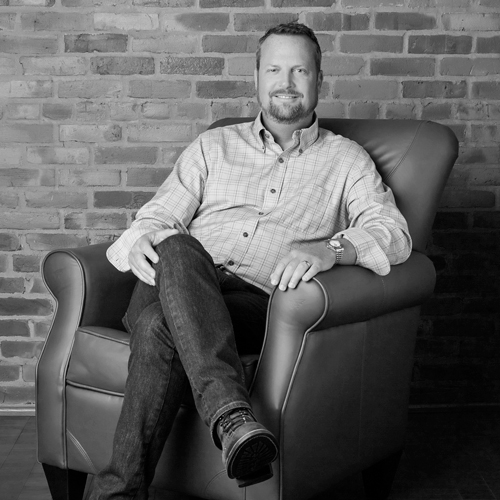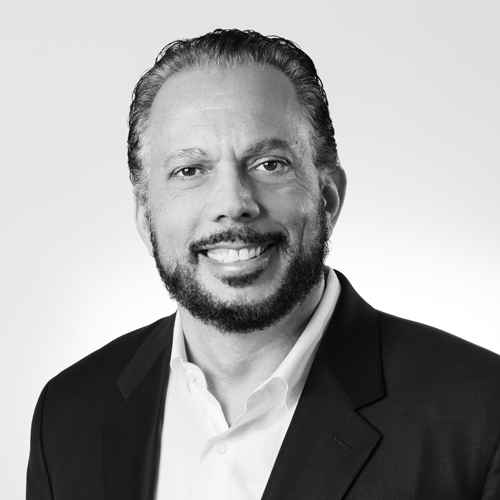Gino Bianchini was learning a great deal from his internship in a criminal defense firm, but the foremost lesson for this young law student was that he did not want a career in criminal defense. Picking through job listings, he noticed one that seemed worth a shot: an opening at Fred Daily’s one-man tax practice located in San Francisco. Catching Bianchini’s attention, the notice read: “Must love tax law.”
Bianchini didn’t love tax law necessarily, but he’d been something of an entrepreneur as an undergraduate at the University of San Diego, and he had enjoyed his studies in business law so far. The position was also likely to suit him better than criminal defense. “It combined statutory, regulatory, and common law analysis, and it was generally intertwined with business, which is where I originally thought my legal career would be focused. So, I got the best of both worlds,” he says.
Though he discovered that the one-person practice wasn’t exactly for him, Bianchini developed the diligence and propriety that continue to support his professional approach today. “I learned to be an advocate, yet stay respectful,” he says. “I start from that position, try to understand where my adversary is coming from, and treat them with respect, until it’s clear that is not in the best interest of my client. Then, the gloves come off.”
Plus, over time, he found that he did love tax law: he was having fun, he was learning, and he was coming to be valued by clients and colleagues alike.
Bianchini left in 1997 to join Ernst & Young (now EY) Kenneth Leventhal Real Estate Group. In 2001, he got the opportunity to rotate through the EY National Tax Department in Washington, DC, which is where Bianchini quickly realized he wasn’t yet the tax wizard he had thought. The excellence, exactitude, and high degree of scrutiny at the organization quickly humbled him, prompting a sink-or-swim moment.
“I just dug in,” he recalls. “The level was so high, and I didn’t want to the be the young professional who missed something because I hadn’t done enough research, so I plowed into research and wrote and wrote.”
Bob Shachat, one of the most highly respected real estate tax lawyers in the country, and something of a personal idol for Bianchini, took the emerging associate under his wing. “I think he thought I needed help,” Bianchini recalls with a laugh.
Shachat opened the door on panel appearances, which helped Bianchini develop stage-worthy confidence and intellectual agility. Most of all, he provided an example of the legal professional that Bianchini wanted to be. Sophisticated, agile, and personable, Shachat was also a leader who shaped the workplace experience for his colleagues and created a team subculture that supported the larger organization’s pursuit of excellence.
“That was one of the big things I learned from EY: the importance of culture for getting the best results for clients. There’s no such thing as an accidentally strong culture. They’re built on purpose, with clarity and direction,” Bianchini says.
Among his own team, he leverages levity and personal connection to create an organization of invested actors. If they know each other and care about each other—if the team’s mission has a personal element—then they’ll support each other and deliver when it counts. In other words, tax law is supposed to be fun.
As a service-oriented leader, he takes time to learn and understand his team’s individual career goals. While he arranges his team to serve the needs of his clients or the organization, he also considers how he can support his colleagues’ professional ambitions. “We codevelop key roles and responsibilities for every member on the team,” he says. “They’re taking responsibility for something that helps the team achieve the larger objective.”
Bianchini’s dedication to mentorship has been noticed by the business partners he works with regularly.
“As long as I have known Gino, as a colleague and friend at Greenberg Traurig and now as a client, his dedication to quality and service is apparent in everything he does,” says Dennis Block, senior chairman of global M&A at law firm Greenberg Traurig. “He embodies the spirit of leadership, positively impacting the many people he works with. It has been an honor and a pleasure to work with him for all these years.”
When roles, goals, and mission align, the team can fire on all cylinders. “If you have a Ferrari on a busy New York street, you’ll never see what that high-performance car can really do,” Bianchini explains. “Similarly, I have a great team and, as a leader, I need to provide the race track for them to show off their skills. We built that track, and now I just have to hang on.”
Where his judgments and their aims mismatch, Bianchini will also try to provide the guidance that will help them be successful, even if that means they should consider another track or even another organization. As he discovered between the end of his professional baseball ambitions—a short-lived childhood dream—and the beginning of his tax law career, it’s as important to do what you’re good at as it is to do what you love.
That approach extends to his own concept of mentorship. Grateful to a number of his own mentors, Bianchini knows the importance of paying that relationship forward, so he has a number of formal and informal mentees. He also knows that the mentor is just one tool in a young professional’s kit, and how much is learned from one’s mentorship is the responsibility of the mentee.
“If I have a successful mentee, it’s likely not due to anything I have done,” he says. “It’s up to the mentee to find a mentor and determine what they want to learn from them. I try to set an example, and if I can help them learn even one new skill, then I have been a successful mentor.”
One of Bianchini’s former students from Chapman University School of Law served as his intern at EY. A job offer was extended but not accepted, as the student went on to pursue a master’s program. About ten years later, their paths crossed again and now the student works with him as associate tax counsel. The moral, he says, is that “you never know where a professional relationship will take you—or when it will take you there.”
As he reminds his young associates, the rewards won’t reveal themselves immediately: the interns won’t be driving deals and meeting clients, but they will function as part of the team that does. Getting a spot at the firm only means you have an opportunity. The trial and the journey are still to come, so dig in, be diligent, do what you’re good at, and be good at what you do.
Photo: Roger Clay

